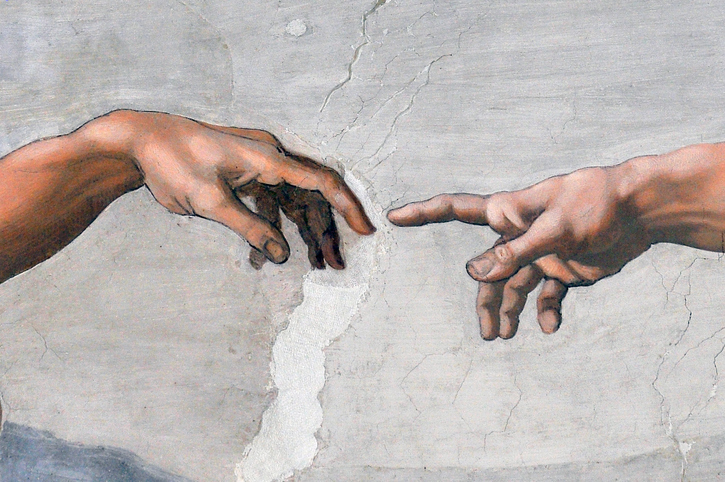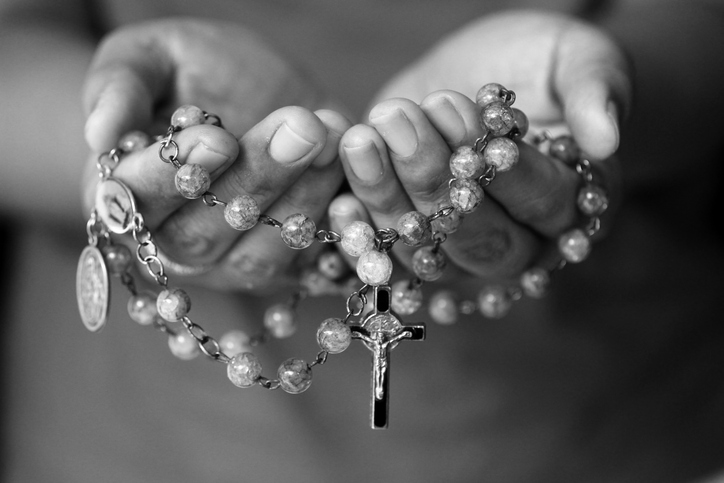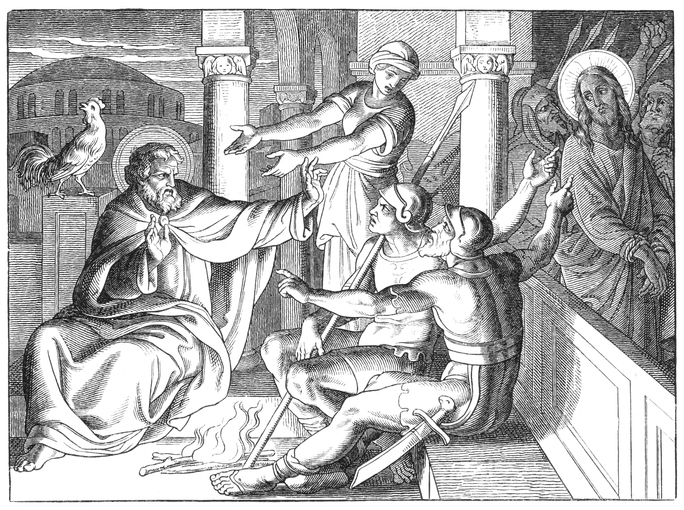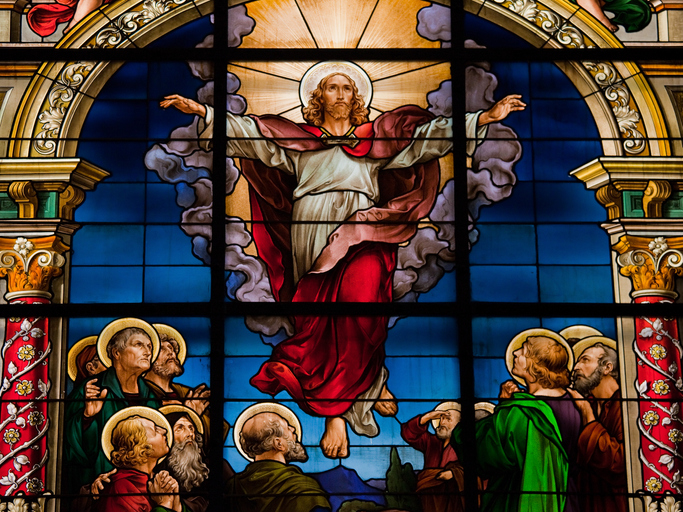It is striking how little our readings today speak about anyone other than God. Saint Paul tells Timothy to “remember Jesus Christ,” and to be faithful to God by presenting himself as a “workman who causes no disgrace” (2 Tim 2:8, 15). The Psalmist sits humbly before the Lord, asking to be taught. Jesus reminds his listeners that God comes first and that we ought to love Him with our whole selves.
This serves as a good reminder of why we should do all that we do. Being a father of a nearly six-month-old daughter and a husband working overtime, this can be easy to lose track of. There are many things that can shift my focus away from the Lord. Many of these are actually good, but they can take too central a place. Pleasing my wife, providing for my family, caring for my daughter – any one of these can become the reason that I do anything else.
It is easy to get so caught up in financial concerns, personal growth, and my relationship with my wife that God is barely present in my thoughts. I seek to serve the Lord, but I am usually thinking of my family or myself. This is not terrible, but our readings today remind us that we ought to have higher standards.
Today, we are reminded that the reason we should be doing everything that we do is love for God. This is more simple than we might think. It is not that we need to stop loving our neighbor or working for the good of our families. We simply need to do these things in a specific way, with the proper perspective and goal. We can still do things for the usual reasons, but it should all be directed to God. Practically, our readings can give us some tips:
We can take our first cue from the Psalmist, whose only desire is to learn God’s ways. He recognizes that guidance and wisdom come from the Lord. Sitting before the Lord in a humble posture of listening is essential for putting God first. Without first desiring to learn from God, we cannot truly love Him with our whole heart, soul, mind, and strength. We must sit at His feet, hear His Word, and carry it out. His ways should be our own; His Word should inform our words. Without this, we set the wrong foundation for ourselves.
Once we take the Lord’s instruction as our starting point, we can serve Him with fidelity. As Saint Paul explains in his letter to Timothy, we should be conducting ourselves honorably, “imparting the word of truth without deviation” (2 Tim 2:15). Rooted in the Word, we should speak what we hear, remaining in the Truth. Our relationship with God will be the basis for how we approach our lives, from our attitudes to our actions and conversations. All of these things should correspond to God’s commands and admonitions, and we should be sharing them with others.
Letting ourselves be formed by God and His commandments is great, but the fact is that we are not always thinking or talking about the Lord. Because of our duties of state, we cannot always speak directly about the Lord, teach the truth at every moment, or soak in Scripture for copious amounts of time. More often than not we are changing diapers, dealing with conflicts, planning for the future, or engaging in other mundane responsibilities.
Though it may seem like these moments are unrelated to our service to God, this is not the case. As with letting ourselves be formed by God, it is a matter of putting God first. We can still do our duties of state, but we can do them for the glory of God. As Christ points out by naming the second commandment after the greatest, the call to love our neighbor is not incompatible with the love of God. It simply needs to be subordinated to it.
Simply, what this means is that we ought to do all things for God’s glory. In offering it to God, everything that we do can become a prayer, however mundane. Once this is put into practice, every aspect of our lives will point to God. By listening to God, we set Him as our foundation. By speaking of His truths and commands, we share Him with others. By dedicating even a load of laundry to Him, we continue our sacrifice and give Him glory. If we can live in this way, we can truly love the Lord with all our heart, all our soul, all our mind, and all our strength.

David is the Associate Director of Liturgy for a group of parishes in Pittsburgh, Pennsylvania. When he is not spending time with his wife and infant daughter, he is writing on philosophy and theology for various online publications. You can find some of these in Crisis Magazine and the Imaginative Conservative, and you can contact him at ddashiellwork@gmail.com.




















